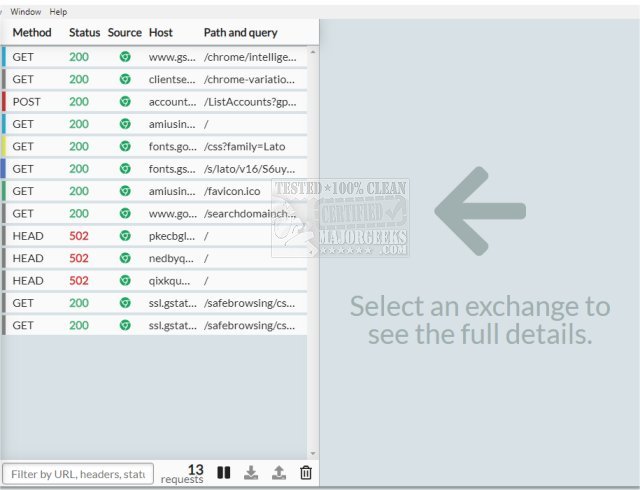HTTP Toolkit has released version 1.23.0, enhancing its capabilities for intercepting HTTP and HTTPS traffic across a wide range of clients, including popular web browsers like Chrome and Firefox, command-line tools, and various back-end programming languages such as Node.js, Python, and Ruby. This tool serves as an HTTP(S) proxy, making it compatible with standard requests from virtually any programming language or tool, even those without built-in integration.
One of the standout features of HTTP Toolkit is its ability to streamline traffic analysis. Users can easily filter through traffic by content type, status, and source, or conduct searches based on URL, status, and headers to pinpoint crucial messages. The tool provides detailed insights into each request or response, including URL, status, headers, and body, supplemented with inline documentation from MDN. Additionally, it offers advanced viewing options for message bodies, featuring syntax highlighting and autoformatting for various formats such as JSON, HTML, JavaScript, and hex, leveraging the capabilities of the Monaco editor from Visual Studio Code.
Moreover, HTTP Toolkit allows users to interactively pause and edit live HTTP traffic by precisely matching incoming requests. Users can modify the target URL, HTTP method, headers, or body as needed. The toolkit also supports manual responses to incoming requests or allows users to pass them upstream while editing the actual response on its return journey. This flexibility enables users to step through HTTP traffic requests one at a time or to simulate endpoint behavior and errors for testing purposes.
Key features of HTTP Toolkit include:
- Cross-platform compatibility (Linux/Mac/Windows)
- Comprehensive interception integration
- Essential HTTP debugging tools
- Manual HTTP mocking and rewriting capabilities
In addition to these features, users may also find relevant resources for troubleshooting network issues, such as fixing unidentified network problems on Windows, flushing the DNS cache, resetting TCP/IP settings, and utilizing the ping command.
As HTTP Toolkit continues to evolve, it promises to be an indispensable tool for developers and network engineers requiring efficient and effective HTTP debugging and traffic management solutions
One of the standout features of HTTP Toolkit is its ability to streamline traffic analysis. Users can easily filter through traffic by content type, status, and source, or conduct searches based on URL, status, and headers to pinpoint crucial messages. The tool provides detailed insights into each request or response, including URL, status, headers, and body, supplemented with inline documentation from MDN. Additionally, it offers advanced viewing options for message bodies, featuring syntax highlighting and autoformatting for various formats such as JSON, HTML, JavaScript, and hex, leveraging the capabilities of the Monaco editor from Visual Studio Code.
Moreover, HTTP Toolkit allows users to interactively pause and edit live HTTP traffic by precisely matching incoming requests. Users can modify the target URL, HTTP method, headers, or body as needed. The toolkit also supports manual responses to incoming requests or allows users to pass them upstream while editing the actual response on its return journey. This flexibility enables users to step through HTTP traffic requests one at a time or to simulate endpoint behavior and errors for testing purposes.
Key features of HTTP Toolkit include:
- Cross-platform compatibility (Linux/Mac/Windows)
- Comprehensive interception integration
- Essential HTTP debugging tools
- Manual HTTP mocking and rewriting capabilities
In addition to these features, users may also find relevant resources for troubleshooting network issues, such as fixing unidentified network problems on Windows, flushing the DNS cache, resetting TCP/IP settings, and utilizing the ping command.
As HTTP Toolkit continues to evolve, it promises to be an indispensable tool for developers and network engineers requiring efficient and effective HTTP debugging and traffic management solutions
HTTP Toolkit 1.23.0 released
HTTP Toolkit offers automatic interception of HTTP and HTTPS traffic from most clients, including web browsers like Chrome and Firefox, almost all CLI tools, and back-end languages (Node.js, Python, Ruby, and more).


